As the streaming industry continues to thrive, the demand for smart TVs has surged, offering consumers an enhanced entertainment experience. Among the array of options, Samsung Tizen TV and Roku TV stand out as prominent contenders, boasting robust ecosystems and vast market potential.
For entrepreneurs eyeing the burgeoning smart TV market, developing a branded Samsung TV app or Roku TV app presents a compelling business opportunity. However, the choice between the two platforms begs scrutiny: Which offers superior growth prospects? What sets them apart in terms of features and functionality?
To lead this decision-making process effectively, it’s crucial to conduct a comparative analysis of Samsung Tizen TV versus Roku TV. In this blog, we’ll provide an insightful comparison to Roku TV vs Samsung TV to help you make the right choice. Let’s begin by exploring the fundamentals before delving deeper.
What Is Samsung Tizen TV? A Brief Overview
Samsung Tizen TV represents a sophisticated smart TV platform developed and utilized by Samsung Electronics, designed to enhance the viewing experience for users across a broad spectrum of Samsung Smart TVs. Since its inception in 2015, Tizen TV has served as a pivotal replacement for Samsung’s earlier smart TV platform, Samsung Smart TV, signaling a strategic shift towards a more streamlined and advanced operating system.
Built upon the Linux framework, Tizen TV prioritizes speed, reliability, and user intuitiveness, fostering a seamless interface for users to navigate through an extensive array of streaming services, applications, and multimedia content. Its robust architecture underpins a diverse ecosystem that caters to the evolving demands of modern entertainment consumption.
Samsung Tizen TV’s availability spans across a wide range of Samsung smart TV models, catering to various consumer preferences and budget considerations, from entry-level options to flagship QLED and Neo QLED iterations. Its broad compatibility ensures accessibility and inclusivity, enabling users to enjoy its feature-rich environment regardless of their device choice.
The platform’s acclaim stems from its user-friendly interface, which simplifies content discovery and enhances overall usability. Positive reviews highlight its intuitive design and comprehensive feature set, affirming its status as a formidable player in the smart TV landscape.
As consumers increasingly seek immersive and personalized entertainment experiences, Samsung Tizen TV continues to evolve, incorporating innovative technologies and user-centric enhancements to maintain its competitive edge. Its continued refinement reflects Samsung’s commitment to delivering cutting-edge solutions that redefine the boundaries of home entertainment.
What Is Roku TV? A Brief Overview
Roku TV stands as a pioneering smart TV platform, engineered by Roku, Inc., and adopted by numerous television manufacturers such as TCL, Hisense, and Sharp. It serves as a dynamic operating system, designed to empower users with seamless access to a diverse array of streaming services, applications, and multimedia content, all accessible directly through their television screens.
Since its inception in 2014, Roku TV has swiftly risen in popularity, earning acclaim for its affordability and user-friendly interface. The platform’s capability lies in its customizable nature, offering users the flexibility to tailor their entertainment experience according to their preferences.
Roku TV prioritizes speed and intuitiveness, providing users with a fluid and responsive interface optimized for content discovery and organization. Its intuitive design streamlines the browsing experience, allowing users to effortlessly navigate through a vast library of content with ease.
One of Roku TV’s key features is its accessibility across a broad spectrum of televisions, ranging from budget-friendly models to cutting-edge 4K Ultra HD displays. This inclusivity ensures that users from various demographics and budgetary constraints can enjoy the benefits of Roku’s feature-rich ecosystem without the need for additional set-top boxes or streaming devices.
Roku TV embodies a commitment to democratizing entertainment, offering users unparalleled convenience and choice in how they consume content. Its enduring popularity underscores its status as a leading player in the smart TV landscape, continuously innovating to meet the evolving needs and expectations of modern consumers.
Samsung Tizen TV Vs Roku TV: Market & Growth Scope
In recent years, the rivalry between Samsung Tizen and Roku TV has intensified as both platforms vie for dominance in the smart TV market. The trajectory of Samsung Tizen app and OS/platform reflects a remarkable ascent, positioning it as the premier smart TV OS in the United States. Surpassing competitors like Roku and LG TV OS, Samsung Tizen OS boasts a staggering 50% adoption rate among smart TV owners in the U.S., according to recent research findings.
The scale of Samsung’s dominance extends globally, with Tizen OS commanding a commanding market share exceeding 20% in annual worldwide smart TV shipments. With a staggering user base exceeding 190 million spread across 190 countries, Samsung Tizen’s prominence in the streaming domain appears unassailable.
Notably, global sales of Tizen-powered devices have surged past 300 million units over the last five years, affirming Samsung’s stronghold as the preeminent global smart TV manufacturer for 15 consecutive years. The strategic decision to integrate Tizen OS into all Samsung smart TVs since 2015 solidifies Samsung’s market leadership and underscores its commitment to innovation in the smart TV segment.
Meanwhile, Roku asserts its dominance in the U.S. market, commanding a robust 36% share of the video streaming market. Although Roku TV OS claims a modest 6.4% share of the global smart TV streaming market, its impact is significant. Recent market reports reveal an impressive 63 million active Roku user accounts worldwide as of 2022, fueling an annual revenue surpassing $2.5 billion. Notably, Roku’s influence extends beyond streaming dominance; it captures over 15% of smart TV sales in the U.S., signaling its enduring appeal among consumers.
The clash between Samsung Tizen and Roku TV epitomizes the fierce competition driving innovation and market expansion in the smart TV landscape. As both platforms continue to evolve and innovate, consumers stand to benefit from a rich ecosystem of content and features, poised to redefine the future of home entertainment.
Samsung Tizen TV vs Roku TV: A Comprehensive Comparison
1. Samsung TV Vs Roku TV: Apps/Channels & Ecosystem
In the dynamic sector of smart TV ecosystems, the showdown between Roku vs Tizen TV, reveals the diversity of the streaming options.
Roku TV stands tall with an extensive repertoire of apps and channels catering to diverse entertainment preferences, including popular choices such as:
- Netflix
- Disney+
- HBO Max
- Roku Channels
- YouTube TV
- Hulu
- Amazon Prime Video
- Peacock
- Spectrum
- Vix
- Pluto TV
- NewsLive
- Sling
- Now
- Vevo
- Amazon Music
- Spotify
The compatibility with Apple TV+ content further extends Roku TV’s ecosystem, accommodating Apple enthusiasts seamlessly.
Conversely, Samsung Tizen TV presents a compelling array of apps and channels, curating a rich entertainment experience with platforms like:
- Netflix
- Discovery GO
- ESPN
- Apple TV
- BBC Sports
- CBS
- Facebook Watch
- Prime Video
- Google Play Movies & TV
- HBO Go
- Hotstar
- Hulu
- Sling TV
- YouTube TV
- Sony LIV
- Spotify
- Vudu
- Samsung’s proprietary TV+
The inclusion of a dedicated app store enhances Samsung Tizen TV’s ecosystem, offering tailored apps and games exclusively designed for Samsung smart TVs.
However, it’s crucial to note that while Samsung Tizen TV excels in content diversity, its ecosystem remains confined exclusively to Samsung smart TVs. In contrast, Roku TV enjoys broader accessibility, extending beyond Samsung models and embracing a wide spectrum of televisions from various manufacturers. Furthermore, Roku’s standalone streaming devices, including the Roku Streaming Stick and Roku Ultra, amplify its reach, ensuring users across different platforms can experience its extensive content library and intuitive interface.
2. Tizen Smart TV Vs Roku TV: Video Quality
Samsung Tizen TV, armed with Samsung’s proprietary QLED technology, shines bright with vivid color reproduction and deep blacks, setting the stage for an immersive visual journey. The integration of Dynamic Tone Mapping optimizes brightness and contrast dynamically, ensuring authenticity and realism in each scene. This technological prowess elevates the overall picture quality, offering viewers a cinematic experience that transcends conventional standards.
On the flip side, Roku TV maintains a consistent video quality paradigm across its diverse range of models. Supporting 4K Ultra HD and HDR, most Roku TV models deliver crisp, lifelike images. The addition of Dolby Vision HDR enhances the viewing experience, providing a broader color spectrum and heightened contrast for unparalleled visual depth. Notably, Roku TV’s “HDR Performance Package” fine-tunes HDR performance on compatible models, ensuring optimal picture clarity and fidelity.
Both platforms incorporate advanced upscaling technology, enhancing the visual appeal of lower resolution content on higher resolution screens. This feature enriches the viewing experience, revitalizing classic content and ensuring seamless compatibility with modern display standards.

3. Roku Vs Samsung TV: Audio Quality
Roku vs Samsung TV – both platforms support a diverse range of audio formats, including the immersive Dolby Atmos and DTS:X, promising users a cinematic journey within the confines of their living rooms.
Samsung Tizen TV harnesses the power of Samsung’s proprietary Object Tracking Sound technology, a groundbreaking innovation that orchestrates a three-dimensional auditory panorama by dynamically tracing the movement of objects on the screen. This immersive feature engulfs viewers in a multidimensional audio landscape, heightening the realism of their viewing experience. Furthermore, Samsung Tizen TV integrates Adaptive Sound functionality, intelligently adjusting audio parameters to suit the nuances of the content being played. This adaptive approach ensures crystal-clear dialogue and dynamic sound effects, enhancing immersion across genres and formats.
On the other hand, Roku TV employs Roku Voice, an intuitive voice control interface accessible through both the TV’s remote control and the Roku mobile app. Roku Voice empowers users to navigate through their entertainment universe with ease, enabling content searches, channel launches, and feature controls through simple voice commands. The “Quick Remote” feature enhances accessibility by facilitating voice-controlled TV operations without reliance on the physical remote control.
While Roku Voice offers convenience and accessibility, it may not match the robust functionality of Bixby. The breadth of features controlled by Roku Voice may be narrower compared to Bixby’s comprehensive capabilities. Nevertheless, both platforms boast remarkable accuracy and adaptability, capable of understanding diverse accents and dialects. Leveraging advanced natural language processing, users can communicate with their TVs using complete sentences, fostering a more seamless and intuitive interaction paradigm.
4. Samsung TV Vs Roku TV: User Interface
Samsung Tizen TV’s interface embodies a sleek and modern aesthetic, characterized by a minimalist design ethos and intuitive navigation pathways. The home screen serves as a gateway to a world of entertainment, featuring a prominent row of apps alongside a curated content recommendation section tailored to individual viewing habits and preferences.
Navigating through settings, search functionalities, and additional features is effortlessly facilitated by the dedicated home button on the remote control. Moreover, Samsung Tizen TV introduces the innovative “Multi View” feature, enabling users to split the screen and indulge in simultaneous app or source viewing, enhancing multitasking capabilities and user engagement.
Conversely, Roku TV’s interface adopts a more traditional layout, featuring a grid-based arrangement of apps and channels on the home screen. However, this interface offers a high degree of customization, empowering users to rearrange apps and curate their content ecosystem according to personal preferences.
The inclusion of the “Featured Free” feature adds a layer of convenience, spotlighting a curated selection of free content from diverse channels and apps, catering to budget-conscious viewers and broadening accessibility to premium entertainment options.
5. Roku TV Vs Samsung TV: Learning Curve
Samsung Tizen TV offers users a modern and intuitive interface, fostering a seamless transition into the smart TV experience. With its simplistic home screen and straightforward menu navigation, users can swiftly access apps, search for content, and adjust settings using the remote control. The inclusion of the “Universal Guide” feature enhances user engagement by providing personalized content recommendations based on viewing history and preferences.
Additionally, Samsung Tizen TV’s user-friendly remote control, equipped with dedicated buttons for common functions like volume and channel control, facilitates effortless navigation and operation.
In contrast, Roku TV presents a more traditional interface, featuring a grid layout of apps and channels on the home screen. While customizable, this layout may require users to acclimate to its navigation nuances and content discovery mechanisms.
However, with time, users can harness the platform’s flexibility to rearrange apps and tailor their viewing experience to individual preferences. Notably, Roku TV’s “Roku Feed” feature empowers users to track specific movies or TV shows, receiving notifications when new episodes or related content become available, adding a layer of personalization to the viewing journey.
Ultimately, the learning curve for Samsung Tizen TV vs Roku TV hinges on user familiarity with smart TV interfaces and personal preferences for interface design and remote control features. While Samsung Tizen TV offers a modern and streamlined interface, Roku TV provides customization options and advanced features, catering to diverse user needs and usage patterns.
Samsung Tizen TV Vs Roku TV: The Ultimate Choice
When it comes to launching your own branded smart TV apps, both Samsung Tizen TV and Roku TV stand out as formidable options. Boasting robust market potential, expansive growth scope, and promising profitability, both platforms present compelling opportunities for entrepreneurs seeking to tap into the burgeoning smart TV landscape. If you’ve been contemplating entering this space, the time to act is now!
Muvi One, a revolutionary no-code streaming platform offering a seamless solution to launch your very own branded smart TV app or channel effortlessly. With Muvi One, you can bring your vision to life without ever needing to write a single line of code. Its intuitive interface empowers you to create and launch your branded Samsung Tizen or Roku TV app with just a few clicks, eliminating the complexities typically associated with app development. What’s more, Muvi One supports over 16 environments, ensuring compatibility and accessibility across a diverse array of platforms.
Take a 14-day free trial to get started today!

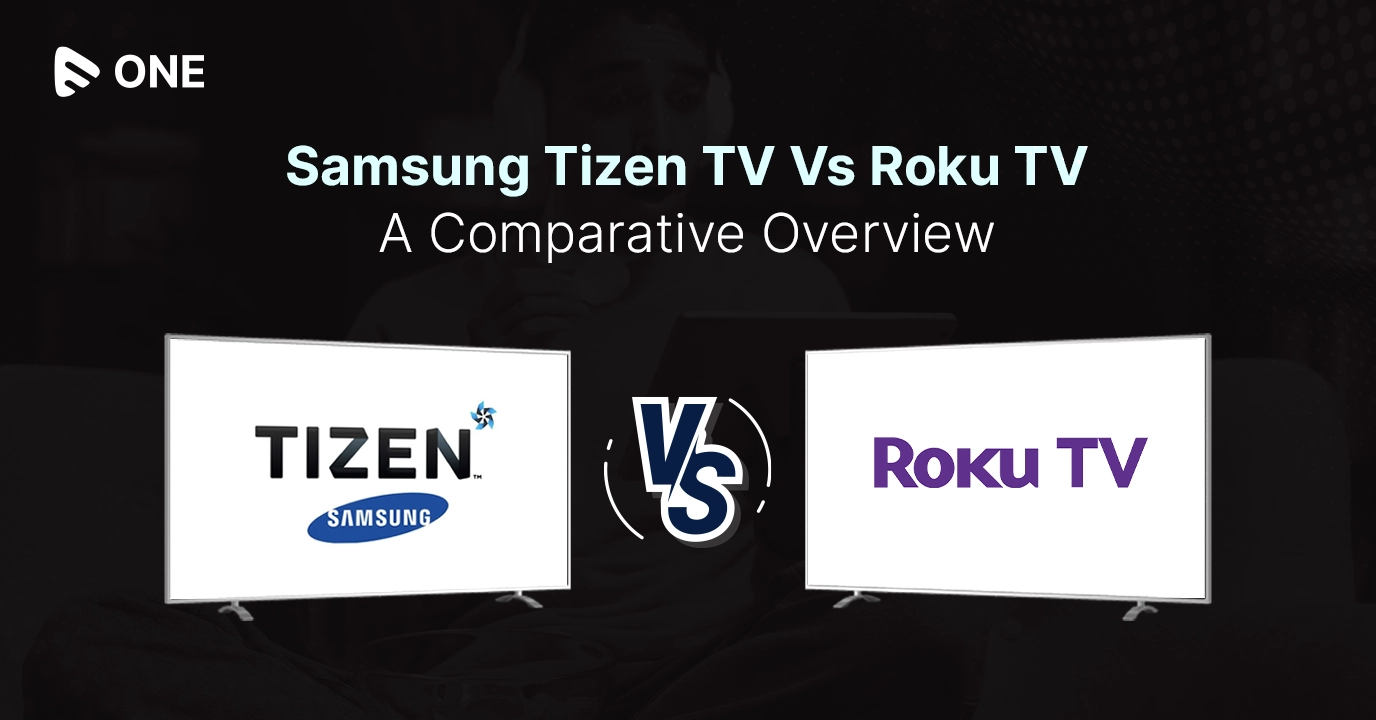




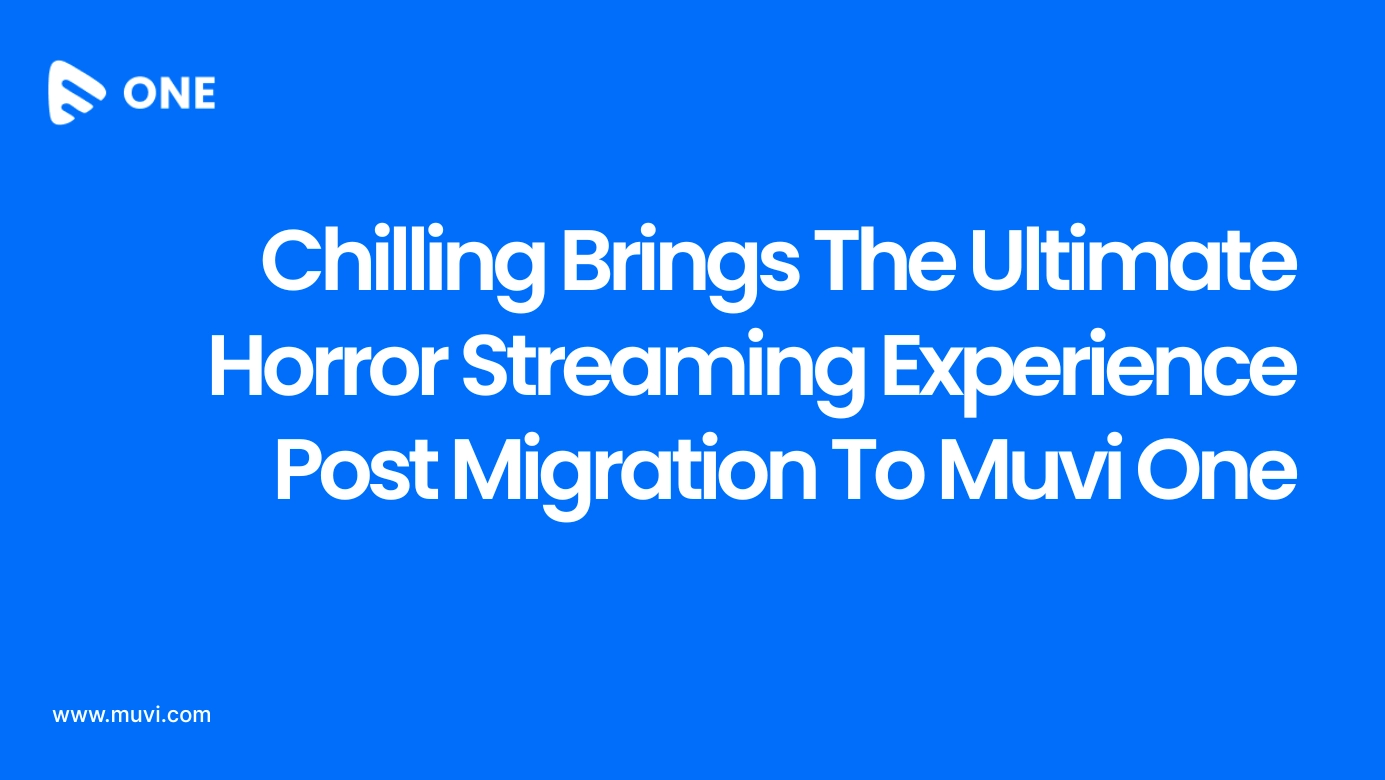





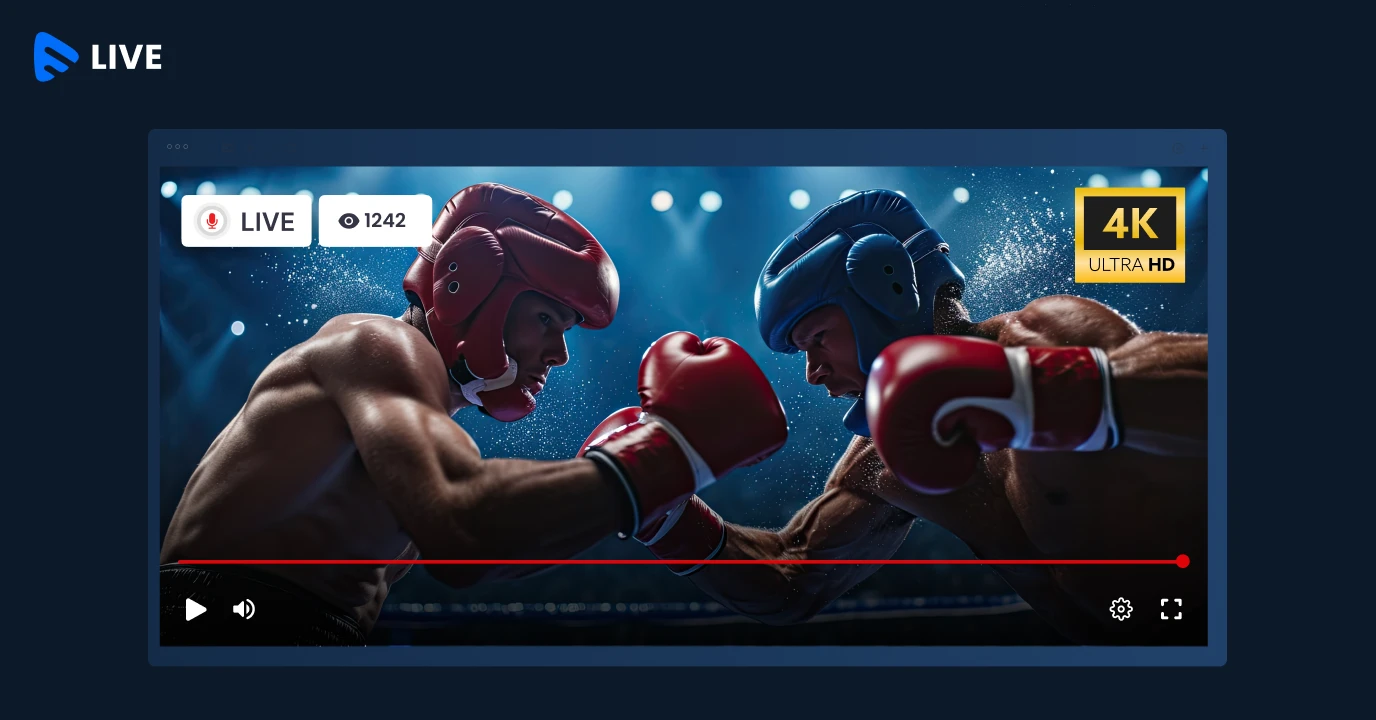
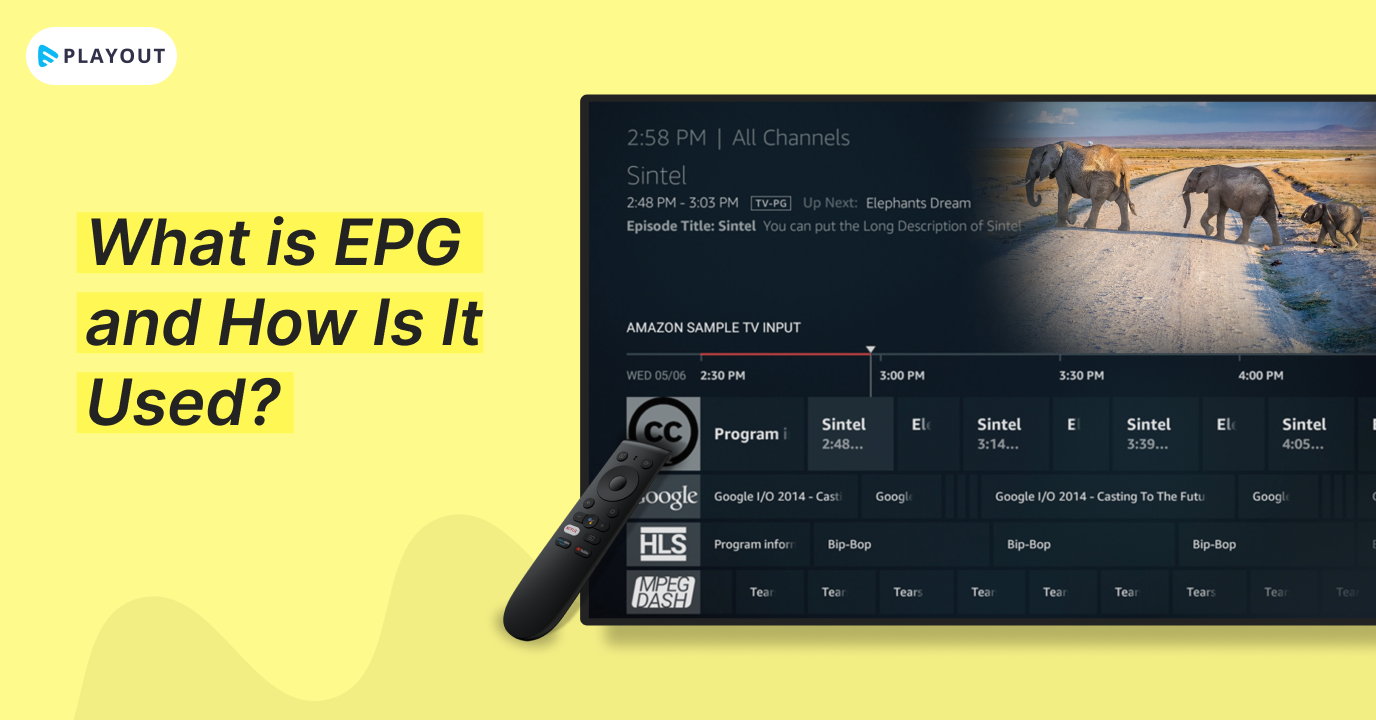
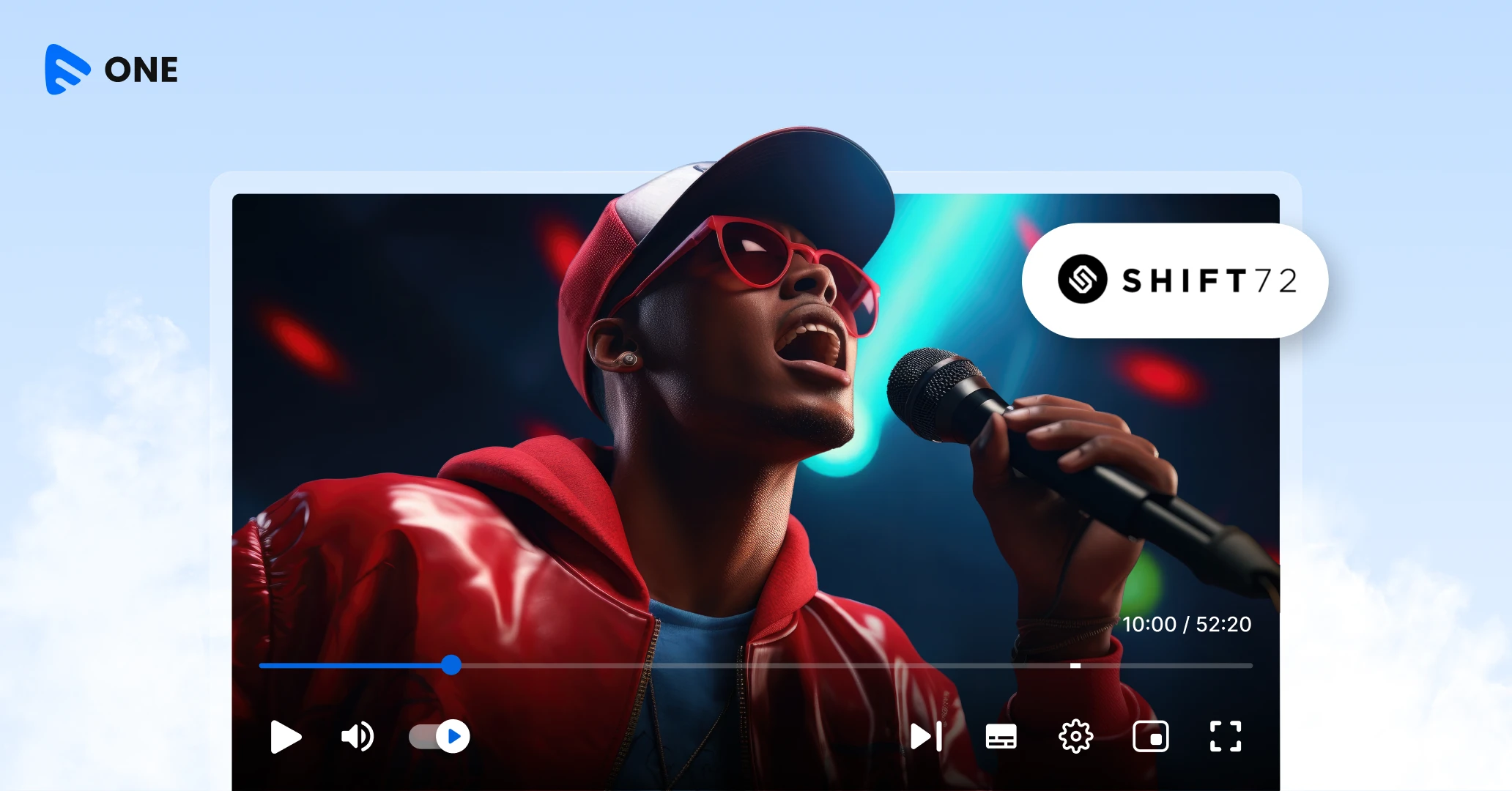

Add your comment